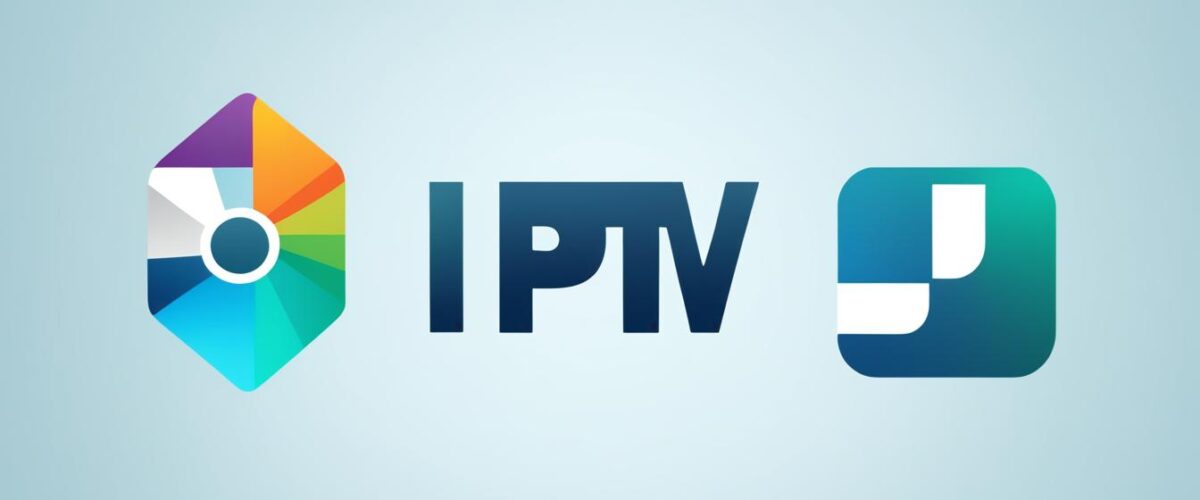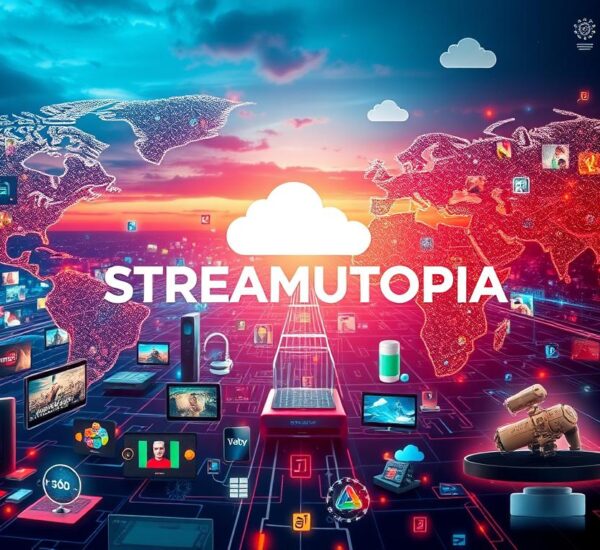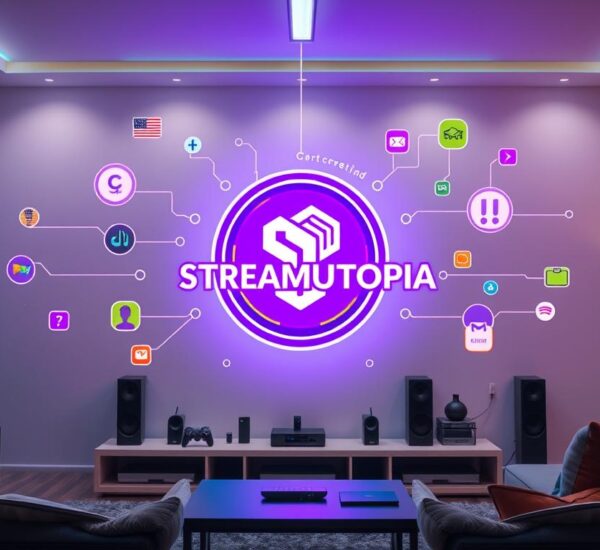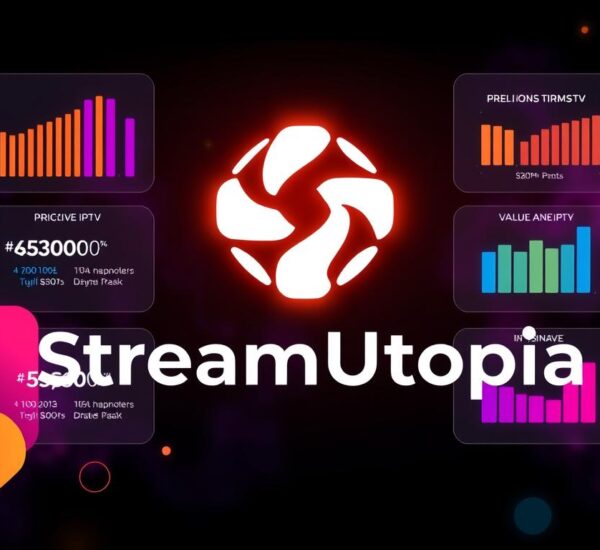Is your choice between IPTV and Cable TV limiting your viewing experience? In recent years, many have found themselves torn between these two leading options. Each has unique benefits and capabilities. This analysis will look at how IPTV compares to Cable TV, focusing on content availability, service quality, flexibility, and costs.
With IPTV offering a wide selection of channels and video-on-demand, it’s gaining popularity over traditional Cable TV. The rise of streaming services is making people want more flexible viewing options. This challenges the old Cable TV model. We’ll explore the differences between these two services to help you decide which is best for you.
Discover IPTV options that enhanceyour viewing experience
Key Takeaways
- IPTV provides flexible content options and device compatibility, unlike Cable TV’s fixed infrastructure.
- Monthly costs for IPTV can often be more affordable than those of traditional Cable TV.
- Streaming quality for IPTV can be superior due to dedicated bandwidth for video delivery.
- IPTV includes features such as video on demand and catch-up TV, enhancing viewer convenience.
- While Cable TV is widely available, IPTV requires a stable internet connection.
Introduction to IPTV and Cable TV
It’s important to know what IPTV definition and Cable TV definition mean for those looking at TV options. IPTV uses the internet to send TV shows, not traditional ways like satellite or cable2. This lets you stream TV and video online, giving you more control than old TV ways2. Cable TV uses cables to send signals and is known for being reliable and offering many channels3.
More people want easy access to shows without owning them, making IPTV popular4. With IPTV, you can watch live TV on different devices, unlike some services that focus only on watching shows on demand2. This makes watching TV more personal for people who like to choose what they watch4.
IPTV works like the internet, using packets to send shows, while Cable TV uses fixed channels2. IPTV also offers live streaming and interactive features, giving it an advantage over Cable TV4. Knowing these differences helps people make a smart choice between IPTV vs Traditional Cable.
What is IPTV?
IPTV, or Internet Protocol Television, has changed how we watch TV. It delivers TV shows over the internet, offering many channels and on-demand services. This means you can watch a wide variety of shows at home5.
Definition and Overview
IPTV streams content over the internet. Services like Hulu TV, Sling TV, and YouTube TV show how IPTV is cheaper than traditional cable5. You don’t need a lot of special equipment, making it easy on the wallet1. Plus, you can watch IPTV on phones, tablets, and smart TVs, making it super convenient5.
How IPTV Works
IPTV uses a fast internet connection to stream shows. It offers live TV, on-demand videos, and catch-up TV, giving viewers choices1. For the best experience, you need a stable internet connection. If your internet is slow, you might see buffering6. But, IPTV is secure, so you can trust your shows will play well6.
What is Cable TV?
Cable TV is a way to watch TV using coaxial cables. It brings many channels right into your home. It’s known for being reliable and having great sound and picture quality. This makes it a favorite in many homes.
The Cable TV definition includes live broadcasts from local and premium networks. It gives viewers a wide range of entertainment options.
Definition and Overview
To understand What is Cable TV, we see its importance in TV broadcasting. You need a cable subscription and installation to get it. Unlike IPTV, which uses the internet, Cable TV uses fibre-coaxial networks for a stable connection and lots of channels.
This traditional Cable TV model has worked well for years. It shows how trusted and adaptable the service is.
How Cable TV Works
Cable TV sends programs through both analog and digital signals. Subscribers get connected to the Cable TV provider’s network through coaxial cables. This lets them watch everything from local news to shows from around the world.
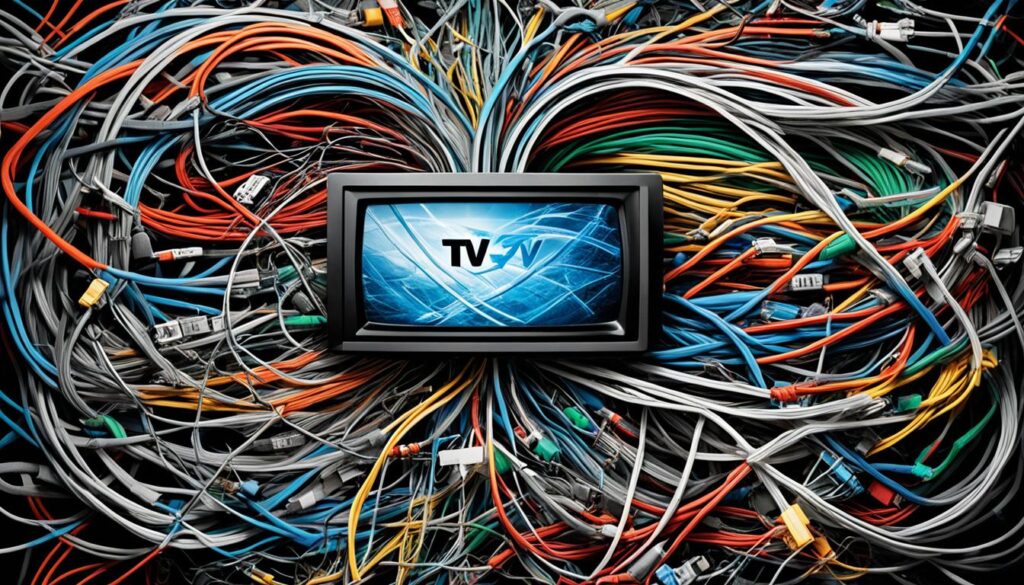
Some Cable TV plans can cost over $100 a month, making people look for cheaper options like OTT streaming7. IPTV lets you watch on different devices with an internet connection. But Cable TV needs cables and signal boosters installed5. It’s known for being reliable in places where internet isn’t always good5.
Choosing between IPTV and Cable TV depends on what you prefer. Some like IPTV’s flexibility, while others value Cable TV’s reliable service5.
| Feature | Cable TV | IPTV |
|---|---|---|
| Signal Delivery | Coaxial cables | Internet connection |
| Installation Requirements | Physical installation with wires | Minimal, only an internet connection |
| Channel Variety | Extensive, including local and international | Customizable packages available |
| Monthly Costs | $100 or more | Often cheaper options available |
| Flexibility | Limited | High, viewable on multiple devices |
How IPTV Compares to Cable TV: A Detailed Analysis
In the Comparison of IPTV and Cable TV, we see big differences in many areas. IPTV is known for its high-definition streams and low buffering times. It gives viewers a more personalized watching experience. It also has a huge library of on-demand videos, perfect for those who want specific shows or movies.
This is different from Cable TV, which has more channels but a set schedule. It’s great for people who like traditional TV. But, IPTV lets users pick what they want to watch anytime, unlike traditional cable TV which has limited choices8.
Looking at costs, IPTV is often cheaper because it’s online and lets you choose your channels. This makes it a good choice for those watching their budget9. Cable TV usually costs more and requires a longer commitment, which can be a drawback. IPTV also lets users save money with bundles and watch on devices like phones and tablets8.
The way users experience IPTV is also better than Cable TV. IPTV has easy-to-use interfaces that make finding shows simple. It also offers more interactivity and on-demand content, which many now see as key for fun9. IPTV’s flexibility and growth potential show a new way people watch TV.
Content Availability and Channel Selection
Looking at IPTV Channel Offerings versus traditional Cable TV Channels, we see a big difference. IPTV gives you a wide range of shows from all over the world, including niche content and on-demand options. This is more than what Cable TV usually offers, which sticks to fewer, local channels10.
IPTV Channel Offerings
IPTV is great because it offers many channels for different tastes. It also has cool features like Catch up TV, Video on Demand, and interactive games. Companies like Lytus Technology in India show how IPTV can give you global movies and series, meeting today’s viewing needs11 and10. With strong networks like Fibre to the Home (FTTH), IPTV can bring you high-quality shows all the time.
Cable TV Channel Offerings
Cable TV Channels are known for their big selection of well-known networks and local shows. They use the DVB-C standard for a dependable viewing experience. While they might not have as many channels as IPTV, the quality and familiarity of their networks keep many subscribers happy. Some Cable TV packages now offer on-demand services to compete with IPTV, but they often don’t match IPTV’s variety and interactivity11.
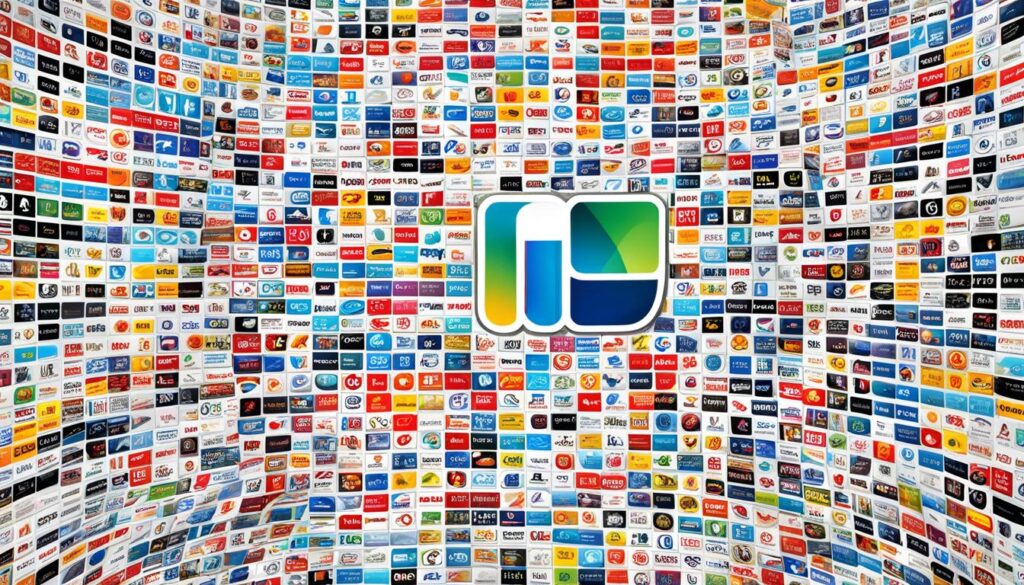
Quality of Service
IPTV and Cable TV offer different qualities that affect how users enjoy their content. Streaming quality is key for a good experience. It’s important to know the differences when choosing between these services.
Streaming Quality in IPTV
IPTV’s streaming quality relies on a strong internet connection. It offers features like 4K resolution and less buffering. With over 200 channels on average, IPTV improves viewing quality9. IPTV’s technology also cuts down on signal problems, with downtime under 5%, unlike other services9. This makes IPTV popular for its interactive features and flexible content delivery11.
Streaming Quality in Cable TV
Cable TV streaming quality is steady, thanks to its well-established setup. It doesn’t rely much on internet speed, so it usually has a stable connection. This leads to better picture quality for HD content. However, Cable TV can’t match IPTV’s on-demand content options12. Cable TV is about 20% pricier than IPTV, which might make it less accessible for some9. Despite this, Cable TV is still a reliable choice for those who value a simple viewing experience9.
Technology and Equipment Requirements
Understanding what you need for IPTV or Cable TV is key. These services have different setup needs based on how they stream content.
IPTV Equipment Needs
IPTV needs are simpler than Cable TV. You usually just need a streaming device or a Smart TV to get started. Devices like Roku or Apple TV work well with services like StreamUtopia.com. You also need a good internet connection for IPTV to work well.
This connection is important for smooth streaming. IPTV uses TCP/IP networks for live and on-demand videos. Big names like Verizon and Netflix are leaders in this field13. IPTV can also come with extra features when combined with voice over IP, making it more useful.
Cable TV Equipment Needs
Cable TV setup is more complex. You often need a set-top box for each TV. The cost of installation can vary by provider. This box decodes the cable signals that come through the coaxial cables.
Some homes might need extra devices like digital adapters or DVRs for the best experience. Unlike IPTV, Cable TV setup can get complicated, especially for big families or those with many TVs14.
Cost Comparison of IPTV and Cable TV
When looking at IPTV and Cable TV costs, it’s key to check out the IPTV monthly costs and the financial impact of a Cable TV monthly subscription. The way these services cost affects what people choose and how they watch TV.
Monthly Subscription Costs for IPTV
IPTV usually costs less than Cable TV, making it a better deal for many9. Users can pick just the channels they like, saving money compared to traditional cable. This means IPTV offers a more personalized experience, which is easier on the wallet1.
Monthly Subscription Costs for Cable TV
Cable TV has more channels and package choices than IPTV9. But, this choice can be expensive, with high prices for premium channels and extra gear. Also, cable often requires long-term contracts, which can lead to high monthly bills. This is different from IPTV’s flexible options1.
The IPTV vs Cable TV costs are a big deal for people deciding on their TV watching and budget15.
Flexibility and Convenience
IPTV brings a lot of flexibility and convenience for users. You can watch content on many devices like smartphones, tablets, smart TVs, and laptops. This is different from Cable TV, which needs a special setup for each TV. This makes IPTV much more flexible than Cable TV, offering easy and smooth viewing experiences.
Device Compatibility with IPTV
IPTV works with many devices, letting users enjoy their shows anywhere. You can stream on smart TVs, gaming consoles, and mobile devices. This makes IPTV perfect for today’s digital world, where people want to watch what they like, when they like it. IPTV’s flexibility is key to its growing popularity among both businesses and individuals1617.
Device Requirements for Cable TV
Cable TV needs special equipment like set-top boxes that connect to your TV. This can limit how you watch TV and might cost more if you have many TVs. Users often get stuck in contracts that don’t let them easily switch services. Cable TV can’t keep up with IPTV’s ability to change and grow with digital content trends.
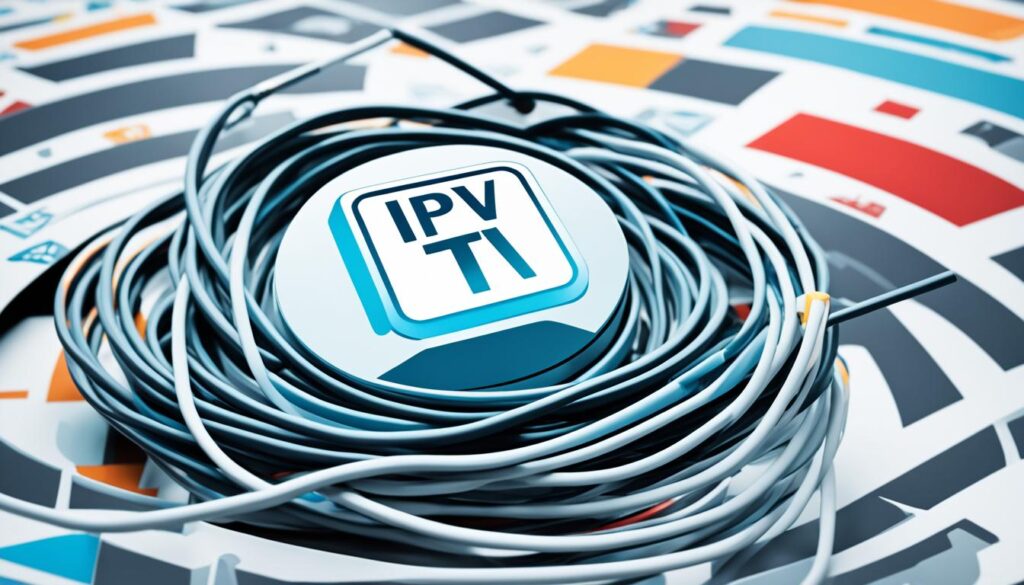
Installation Process: IPTV vs Cable TV
IPTV installation is easier and more user-friendly than Cable TV. It mainly involves setting up the internet connection. You don’t need much hardware or invasive cabling. Just connect a compatible device to your broadband network to start watching content. This makes it a great choice for those who want a quick and easy setup.
Cable TV installation, however, often requires professional help. It needs extensive cabling and hardware setup. This can mean drilling and wiring your whole house, which might delay when you can start using the service. You’ll have to wait for the technician to finish the job, which can be a hassle.
IPTV is flexible and works with many devices like smart TVs, tablets, and smartphones. This makes it easy for viewers to access content anywhere. Unlike Cable TV, which is tied to one spot, IPTV offers more freedom. As IPTV grows, its easy installation makes it a top pick for avoiding Cable TV’s complexity1819.
Additional Features and Functionality
Television viewing has changed a lot, especially with IPTV and its new features. IPTV has changed how we watch shows, offering more than traditional Cable TV. It’s important to know the differences to pick the best service for you.
IPTV Interactive Features
IPTV is known for its interactive features that make watching TV better. You can pause, rewind, or skip parts of shows, giving you control over what you watch20. IPTV also offers things like video-on-demand, personal video recorders, and electronic program guides19.
This makes watching TV easy and fun. You can also make your own favorite channel lists or set alerts for your favorite shows19.
Cable TV Features
Cable TV has some extra features, but it can’t match IPTV’s interactivity. Cable TV sticks to a set schedule, which means you can’t control what you watch as much20. Some Cable TV providers offer on-demand services, but they don’t have the same flexibility as IPTV.
So, many people find IPTV’s features much better than Cable TV’s limited options.
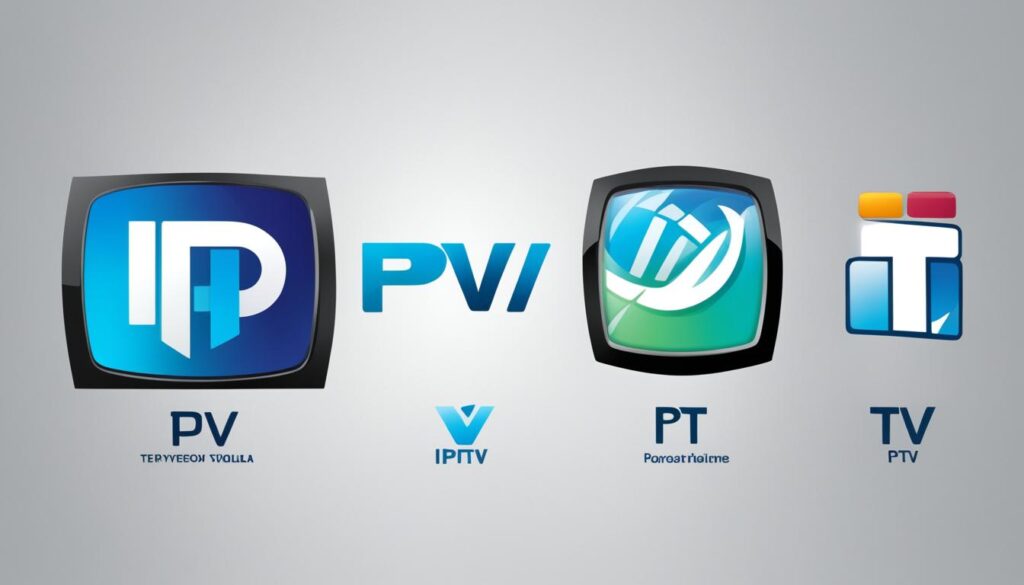
Availability and Accessibility
IPTV and Cable TV have different ways of reaching people. IPTV needs a good internet connection to work well. This means it can go places where Cable TV can’t. It’s great for people living in areas not covered by Cable TV.
Cable TV, on the other hand, needs a special cable system to work. This can make it hard for some people to get it. It’s mainly for areas already covered by cable.
Geographic Availability of IPTV
IPTV is a good choice for places without good cable TV. With services like Netflix and Hulu, you can watch shows on any device with internet. This makes IPTV popular in places where regular TV is hard to get.
Geographic Availability of Cable TV
Cable TV needs cables to work, which can be a problem in rural areas. These areas often don’t have the cables needed for Cable TV. This means they miss out on lots of channels and shows.
Many people don’t like Cable TV because of long contracts and too many unused channels21. Also, Cable TV might offer high-definition shows, but it doesn’t keep up with IPTV’s technology. IPTV uses smart streaming for better quality21.
Viewer Experience and User Interface
When we look at IPTV and Cable TV, the user interface is key. It shapes how we find and enjoy our favorite shows. In recent years, IPTV has made big strides, offering a smooth and easy experience on many devices.
User Interface of IPTV Services
IPTV has modern interfaces that use the latest tech. You can expect:
- Personalization options for a viewing experience just for you.
- Responsive layouts that work great on phones, tablets, and smart TVs.
- Advanced tools to help you find what you want to watch.
- Integration with popular apps and social media for more interaction.
With IPTV, you get easy access to hits like “Game of Thrones,” “Stranger Things,” and “The Crown.” This makes watching your favorite shows a breeze through a user-friendly interface22.
User Interface of Cable TV Services
On the other hand, Cable TV offers a more traditional interface. You might find:
- Less easy navigation, often needing to surf through many channels.
- Less personalization than IPTV.
- Static layouts that don’t change much based on your preferences.
Managing channels can be tough for tech-savvy viewers, leading to confusion. They might struggle to find shows like “The Walking Dead” or “Westworld.” This shows why many prefer IPTV for its modern interface and ease of use23.
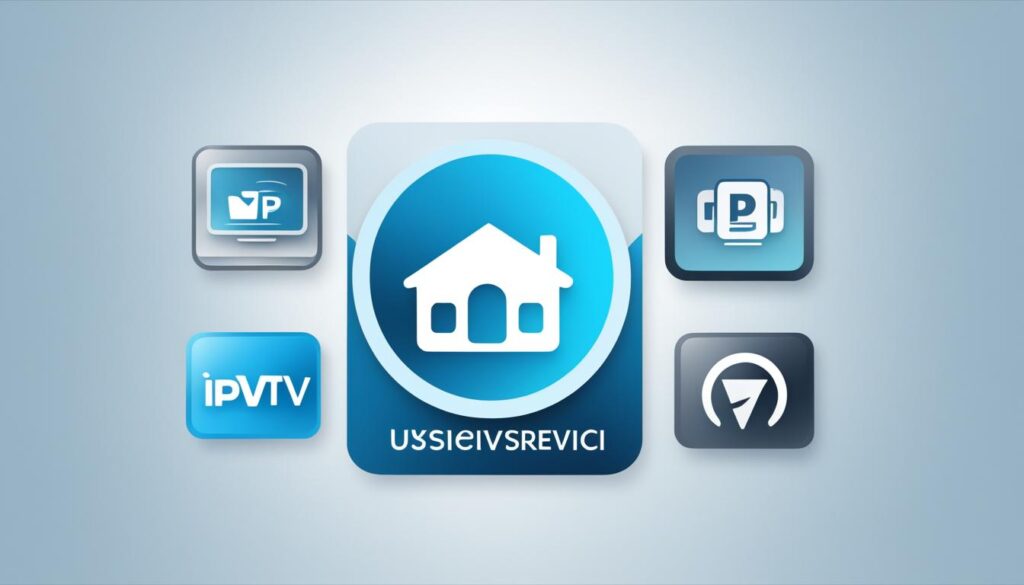
Future of IPTV and Cable TV
Television viewing is changing fast, thanks to new tech and what people want. IPTV is getting more popular as streaming tech gets better and internet speeds go up. People now want to watch shows and movies when they want, not just at set times. IPTV is changing to meet this new way of watching.
Trends in IPTV Technology
IPTV is expected to grow a lot in the future. It was worth USD 68.78 billion in 2023 and could be worth USD 276.38 billion by 2032. That’s a growth rate of 16.8%24. New tech like fiber optics and 5G networks will help IPTV grow even faster24. Also, new video compression tech lets high-quality shows be streamed without using too much internet25.
Adaptive Bitrate Streaming (ABR) makes watching videos smooth by changing quality based on your internet speed25. AI and machine learning are also making content recommendations better, which keeps viewers happy25.
Challenges for Cable TV Providers
Cable TV is facing challenges as people’s viewing habits change. Even though more people subscribed in 2021 than in 2017, the industry is expected to lose about 4.5 million subscribers soon26. People are moving to streaming services because they offer more flexibility and save money24.
With streaming services getting more popular, cable TV needs to offer great content to keep viewers. Cable and streaming are coming together, which means cable needs to innovate to keep subscribers and gain new ones. If cable doesn’t change, it might lose out to IPTV and other streaming services26.
Customer Support and Service
Understanding the differences in customer support between IPTV and Cable TV is key to improving satisfaction and service quality. Each service has its own way of helping customers, which affects how happy users are and how likely they are to stay with the service.
Customer Service for IPTV Providers
IPTV customer service focuses on being easily accessible online. You can get help through chat, email, and phone. This suits people who are comfortable with technology, since IPTV is all about streaming online. With more people watching videos and listening to music online, there’s a big need for good IPTV support3. Top IPTV services like Verizon Fios TV and DIRECTV STREAM offer great content and help, making users happier6.
Customer Service for Cable Providers
Cable TV support offers many ways to get help, including traditional customer service. But, the help can vary a lot because of the complex setup of big cable companies. Some customers get quick and helpful support, but others wait a long time or get mixed answers. Cable TV prices going over $100 a month makes people look for cheaper and more flexible options, including IPTV7. This move towards value makes IPTV more appealing, combining old-school watching with new-school customer service.
Conclusion
The debate between IPTV and Cable TV shows us each has its pros and cons. IPTV gives you more channels, including ones for niche and international tastes1. Cable TV, on the other hand, offers a dependable selection of local and premium channels.
Choosing between IPTV and Cable TV depends on what you value most. IPTV is often cheaper and lets you pick your channels. This makes it a great option for many viewers4. Cable TV, however, is known for its consistent quality, keeping many traditional viewers happy.
At the end, what you prefer will greatly influence your choice. As IPTV grows, with features like on-demand and interactive interfaces, cable TV might need to change too27. Thinking about both options carefully will help you pick the best for your entertainment needs.
FAQ
What is the main difference between IPTV and Cable TV?
Which one provides better content availability and channel selection?
How do the costs compare between IPTV and Cable TV?
What about the quality of service for IPTV versus Cable TV?
How easy is the installation process for each service?
What interactive features can I expect from IPTV?
Can I access IPTV content in remote areas?
What is the viewer experience like with IPTV compared to Cable TV?
What trends are shaping the future of IPTV?
How does customer support differ between IPTV and Cable TV?
